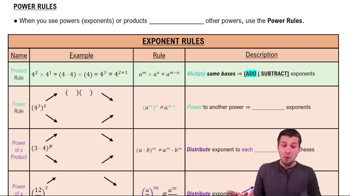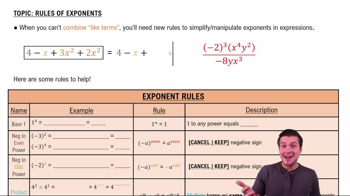Textbook Question
7–28. Derivatives Evaluate the following derivatives.
d/dx (ln (cos² x))
49
views
 Verified step by step guidance
Verified step by step guidance Verified video answer for a similar problem:
Verified video answer for a similar problem:



 4:50m
4:50mMaster Derivatives of General Exponential Functions with a bite sized video explanation from Patrick
Start learning